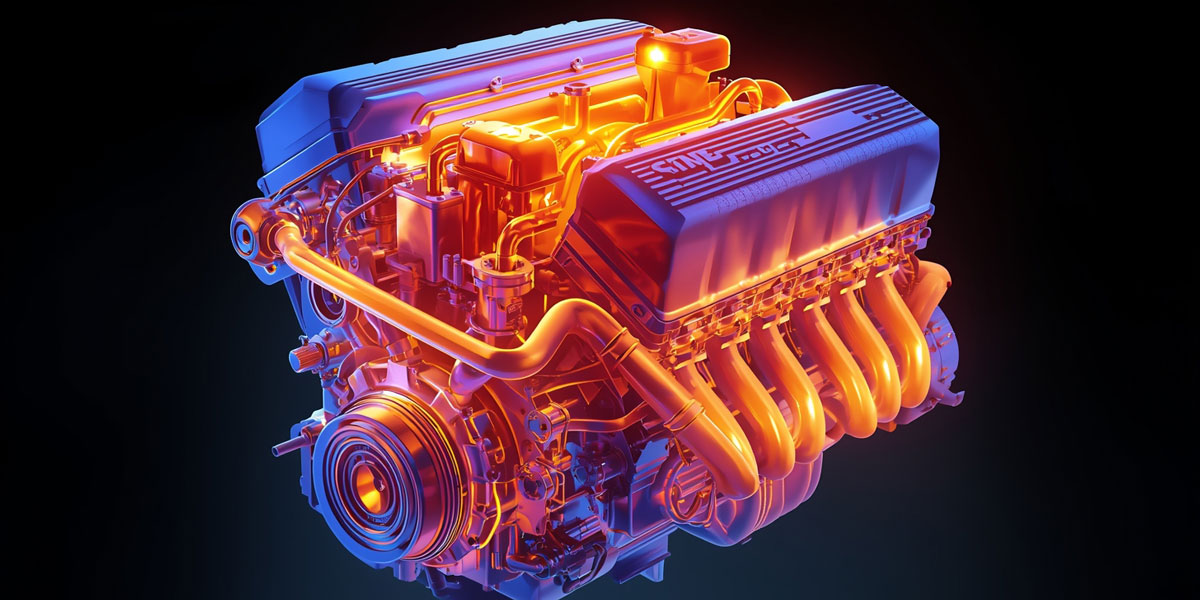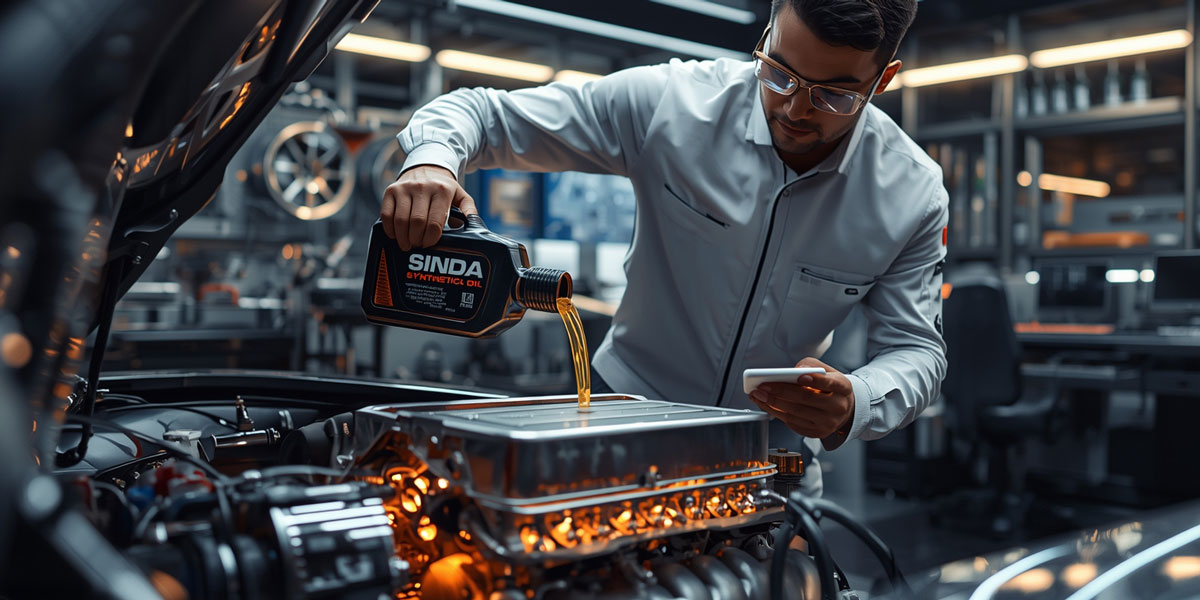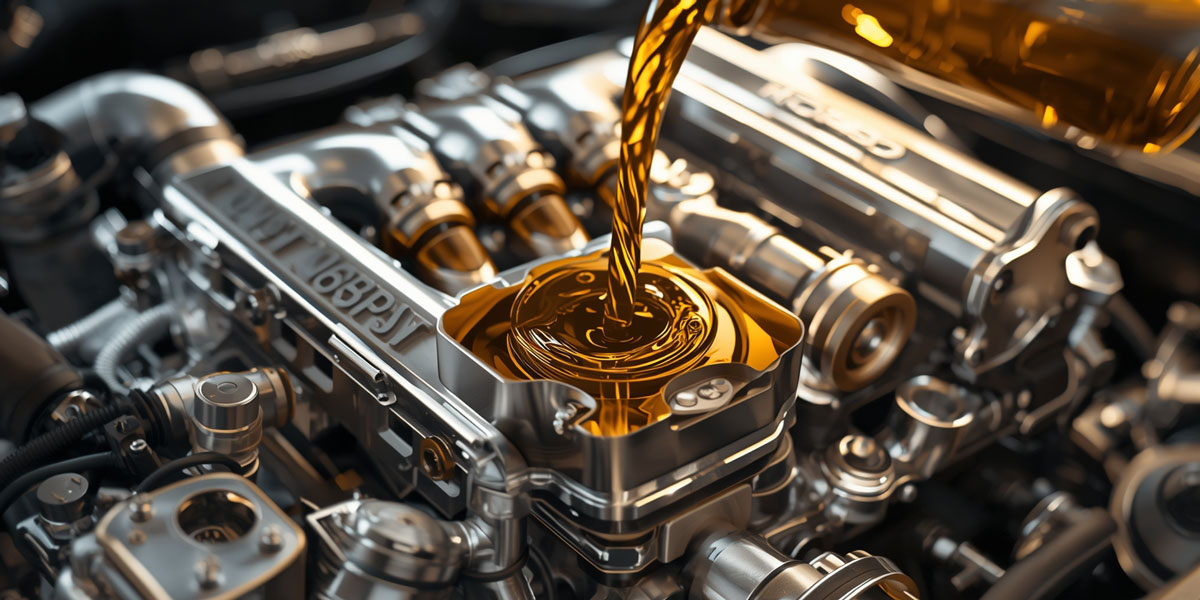Understanding the Role of Engine Lubrication
An internal combustion engine depends on countless rapid movements — pistons sliding, valves opening, and bearings rotating thousands of times per minute.
These repetitive interactions generate extreme friction and heat that can quickly damage metal surfaces.
That’s where automotive lubricants play a vital role — helping lubricants improve engine efficiency by forming a protective film between moving parts.
Friction and Heat: The Enemies of Efficiency
Friction converts valuable mechanical energy into heat, wasting power and fuel. The higher the friction, the lower the efficiency. High-quality lubricants minimize this resistance, allowing the engine to run with less effort. In every application, lubricants improve engine efficiency by lowering internal drag, which translates directly into better fuel economy and longer engine life.
The Science Behind the Lubricating Film
Modern lubricants are engineered blends of base oils and advanced additives. Together, they create a microscopic film that must remain stable under various loads and temperatures. This film prevents scuffing, seizing, and surface wear — the main causes of inefficiency and mechanical failure. With balanced formulation, lubricants improve engine efficiency even under high stress, maintaining optimal performance in both hot and cold conditions.
How Lubricants Improve Engine Efficiency in Practice
1.Reducing Friction for Smoother Power Transfer
Every moving engine component faces resistance. A well-designed lubricant reduces friction, enabling more efficient power transfer from combustion to the drivetrain. As a result, engine efficiency improvement through lubrication means less wasted energy and smoother acceleration.
2.Enhancing Fuel Economy Through Clean Operation
Contaminants such as soot and carbon deposits can restrict oil flow and increase drag. Premium lubricants suspend these particles and carry them to the oil filter for removal. This cleaning action helps lubricants improve engine efficiency by maintaining unrestricted circulation and enabling complete fuel combustion over time.
3.Temperature Control and Thermal Stability
Efficient heat management is essential to consistent engine performance. Lubricants absorb and dissipate excess heat, preventing thermal overload. Synthetic formulations maintain viscosity stability across extreme temperatures, ensuring protection from cold starts to high-load driving. With this capability, lubricants improve engine efficiency by keeping operating temperatures within optimal range.
 Reducing Engine Wear Through Advanced Lubrication
Reducing Engine Wear Through Advanced Lubrication
4.Protection Against Metal-to-Metal Contact
The lubricating film acts as a first line of defense against frictional wear. By maintaining a stable barrier under pressure, lubricants prevent piston and bearing surfaces from grinding together. Over time, this direct protection significantly reduces dimensional wear — another way lubricants improve engine efficiency while extending component lifespan.
5.Cleaning and Contaminant Removal
Detergents and dispersants within modern lubricants actively capture dust, carbon, and metal fragments before they can settle. This continuous cleansing ensures smoother operation and prevents abrasive wear. By keeping the engine clean, lubricants improve engine efficiency and maintain steady power delivery.
6.Anti-Corrosion and Oxidation Resistance
Exposure to oxygen and moisture can lead to rust, corrosion, and oil degradation. High-performance lubricants are fortified with anti-oxidant and anti-corrosion additives that neutralize these threats. As a result, engine efficiency improvement with lubricants continues even in harsh environments, ensuring long-term reliability.
The Rise of Synthetic and High-Performance Lubricants
Molecular Engineering and Viscosity Control
Unlike conventional oils, synthetic lubricants are molecularly designed for uniform structure and predictable behavior. Their controlled viscosity guarantees reliable flow in cold weather and stable protection at high heat. Through precise engineering, synthetic lubricants improve engine efficiency by minimizing internal losses and enhancing durability.
Advantages Over Conventional Oils
Synthetic lubricants resist oxidation, thermal breakdown, and evaporation far better than mineral oils. They deliver longer service intervals, stronger protective films, and lower oil consumption. For fleets and drivers seeking consistent performance, lubricants improve engine efficiency by reducing friction and emissions simultaneously.
Applications in Extreme Environments
From desert highways to industrial plants, lubricants improve engine efficiency by providing dependable performance under pressure. Their resilience makes them ideal for heavy machinery, marine engines, and high-speed vehicles that demand maximum uptime and minimal wear.
SiNDA Oil’s Approach to Engine Protection and Efficiency
Global Production and European Standards
At SiNDA Oil Trading L.L.C, every product is developed under strict European quality supervision. In collaboration with the Italian Petrol Company (IPC), SiNDA produces lubricants that exceed international benchmarks. By integrating global research with local manufacturing in Dubai and Iraq, SiNDA ensures rapid delivery without compromising precision — proving how lubricants improve engine efficiency through innovation and consistency.
Research-Driven Formulation and Quality Assurance
Each SiNDA lubricant combines advanced base oils, polymers, and additive packages optimized for thermal stability and low friction. Ongoing testing and data-driven design ensure that SiNDA lubricants improve engine efficiency even under demanding conditions, delivering measurable fuel savings and extended engine life.
 Final Thoughts: Smarter Lubrication for a More Efficient Engine
Final Thoughts: Smarter Lubrication for a More Efficient Engine
Lubricants are not just fluids — they are precision-engineered performance tools. By reducing friction, controlling heat, and preventing wear, lubricants improve engine efficiency and extend engine lifespan.
For industries and drivers demanding reliability in every climate, SiNDA Oil provides smart lubrication solutions built on innovation, collaboration, and uncompromising quality — helping engines run cleaner, cooler, and longer.











